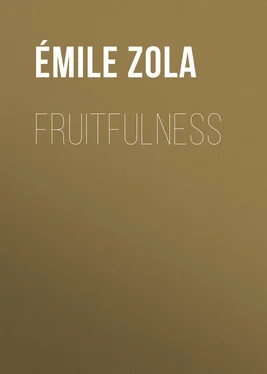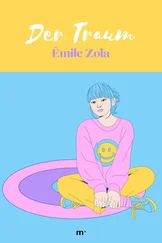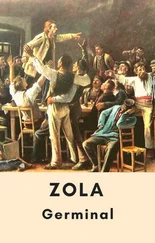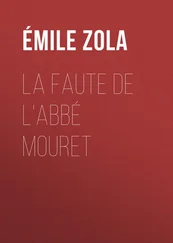Émile Zola - Fruitfulness
Здесь есть возможность читать онлайн «Émile Zola - Fruitfulness» — ознакомительный отрывок электронной книги совершенно бесплатно, а после прочтения отрывка купить полную версию. В некоторых случаях можно слушать аудио, скачать через торрент в формате fb2 и присутствует краткое содержание. Жанр: literature_19, foreign_antique, foreign_prose, на английском языке. Описание произведения, (предисловие) а так же отзывы посетителей доступны на портале библиотеки ЛибКат.
- Название:Fruitfulness
- Автор:
- Жанр:
- Год:неизвестен
- ISBN:нет данных
- Рейтинг книги:5 / 5. Голосов: 1
-
Избранное:Добавить в избранное
- Отзывы:
-
Ваша оценка:
- 100
- 1
- 2
- 3
- 4
- 5
Fruitfulness: краткое содержание, описание и аннотация
Предлагаем к чтению аннотацию, описание, краткое содержание или предисловие (зависит от того, что написал сам автор книги «Fruitfulness»). Если вы не нашли необходимую информацию о книге — напишите в комментариях, мы постараемся отыскать её.
Fruitfulness — читать онлайн ознакомительный отрывок
Ниже представлен текст книги, разбитый по страницам. Система сохранения места последней прочитанной страницы, позволяет с удобством читать онлайн бесплатно книгу «Fruitfulness», без необходимости каждый раз заново искать на чём Вы остановились. Поставьте закладку, и сможете в любой момент перейти на страницу, на которой закончили чтение.
Интервал:
Закладка:
It was three o’clock when they turned their steps homeward; and Marianne, feeling rather tired, then took a little rest on a sofa in the drawing-room, where Zoe had previously lighted a good fire. The children, quieted by fatigue, were sitting round a little table, listening to a tale which Denis read from a story-book, when a visitor was announced. This proved to be Constance, who, after driving out with Maurice, had thought of calling to inquire after Marianne, whom she saw only once or twice a week, although the little pavilion was merely separated by a garden from the large house on the quay.
“Oh! are you poorly, my dear?” she inquired as she entered the room and perceived Marianne on the sofa.
“Oh! dear, no,” replied the other, “but I have been out walking for the last two hours and am now taking some rest.”
Mathieu had brought an armchair forward for his wife’s rich, vain cousin, who, whatever her real feelings, certainly strove to appear amiable. She apologized for not being able to call more frequently, and explained what a number of duties she had to discharge as mistress of her home. Meantime Maurice, clad in black velvet, hung round her petticoats, gazing from a distance at the other children, who one and all returned his scrutiny.
“Well, Maurice,” exclaimed his mother, “don’t you wish your little cousins good-day?”
He had to do as he was bidden and step towards them. But all five remained embarrassed. They seldom met, and had as yet had no opportunity to quarrel. The four little savages of Chantebled felt indeed almost out of their element in the presence of this young Parisian with bourgeois manners.
“And are all your little folks quite well?” resumed Constance, who, with her sharp eyes, was comparing her son with the other lads. “Ambroise has grown; his elder brothers also look very strong.”
Her examination did not apparently result to Maurice’s advantage. The latter was tall and looked sturdy, but he had quite a waxen complexion. Nevertheless, the glance that Constance gave the others was full of irony, disdain, and condemnation. When she had first heard that Marianne was likely to become a mother once more she had made no secret of her disapproval. She held to her old opinions more vigorously than ever.
Marianne, knowing full well that they would fall out if they discussed the subject of children, sought another topic of conversation. She inquired after Beauchene. “And Alexandre,” said she, “why did you not bring him with you? I haven’t seen him for a week!”
“Why,” broke in Mathieu, “I told you he had gone shooting yesterday evening. He slept, no doubt, at Puymoreau, the other side of Chantebled, so as to be in the woods at daybreak this morning, and he probably won’t be home till to-morrow.”
“Ah! yes, I remember now. Well, it’s nice weather to be in the woods.”
This, however, was another perilous subject, and Marianne regretted having broached it, for, truth to tell, one never knew where Beauchene might really be when he claimed to have gone shooting. He availed himself so often of this pretext to absent himself from home that Constance was doubtless aware of the truth. But in the presence of that household, whose union was so perfect, she was determined to show a brave front.
“Well, you know,” said she, “it is I who compel him to go about and take as much exercise as possible. He has a temperament that needs the open air. Shooting is very good for him.”
At this same moment there came another ring at the door, announcing another visitor. And this time it was Madame Morange who entered the room, with her daughter Reine. She colored when she caught sight of Madame Beauchene, so keenly was she impressed by that perfect model of wealth and distinction, whom she ever strove to imitate. Constance, however, profited by the diversion of Valerie’s arrival to declare that she unfortunately could not remain any longer, as a friend must now be waiting for her at home.
“Well, at all events, leave us Maurice,” suggested Mathieu. “Here’s Reine here now, and all six children can play a little while together. I will bring you the boy by and by, when he has had a little snack.”
But Maurice had already once more sought refuge among his mother’s skirts. And she refused the invitation. “Oh! no, no!” said she. “He has to keep to a certain diet, you know, and he must not eat anything away from home. Good-by; I must be off. I called only to inquire after you all in passing. Keep well; good-by.”
Then she led her boy away, never speaking to Valerie, but simply shaking hands with her in a familiar, protecting fashion, which the other considered to be extremely distinguished. Reine, on her side, had smiled at Maurice, whom she already slightly knew. She looked delightful that day in her gown of thick blue cloth, her face smiling under her heavy black tresses, and showing such a likeness to her mother that she seemed to be the latter’s younger sister.
Marianne, quite charmed, called the girl to her: “Come and kiss me, my dear! Oh! what a pretty young lady! Why, she is getting quite beautiful and tall. How old is she?”
“Nearly thirteen,” Valerie replied.
She had seated herself in the armchair vacated by Constance, and Mathieu noticed what a keen expression of anxiety there was in her soft eyes. After mentioning that she also had called in passing to make inquiries, and declaring that both mother and children looked remarkably well, she relapsed into gloomy silence, scarcely listening to Marianne, who thanked her for having come. Thereupon it occurred to Mathieu to leave her with his wife. To him it seemed that she must have something on her mind, and perhaps she wished to make a confidante of Marianne.
“My dear Reine,” said he, “come with these little ones into the dining-room. We will see what afternoon snack there is, and lay the cloth.”
This proposal was greeted with shouts of delight, and all the children trooped into the dining-room with Mathieu. A quarter of an hour later, when everything was ready there, and Valerie came in, the latter’s eyes looked very red, as if she had been weeping. And that evening, when Mathieu was alone with his wife, he learnt what the trouble was. Morange’s scheme of leaving the Beauchene works and entering the service of the Credit National, where he would speedily rise to a high and lucrative position, his hope too of giving Reine a big dowry and marrying her off to advantage – all the ambitious dreams of rank and wealth in which his wife and he had indulged, now showed no likelihood of fulfilment, since it seemed probable that Valerie might again have a child. Both she and her husband were in despair over it, and though Marianne had done her utmost to pacify her friend and reconcile her to circumstances, there were reasons to fear that in her distracted condition she might do something desperate.
Four days later, when the Froments lunched with the Seguins du Hordel at the luxurious mansion in the Avenue d’Antin, they came upon similar trouble there. Seguin, who was positively enraged, did not scruple to accuse his wife of infidelity, and, on his side, he took to quite a bachelor life. He had been a gambler in his younger days, and had never fully cured himself of that passion, which now broke out afresh, like a fire which has only slumbered for a time. He spent night after night at his club, playing at baccarat, and could be met in the betting ring at every race meeting. Then, too, he glided into equivocal society and appeared at home only at intervals to vent his irritation and spite and jealousy upon his ailing wife.
She, poor woman, was absolutely guiltless of the charges preferred against her. But knowing her husband, and unwilling for her own part to give up her life of pleasure, she had practised concealment as long as possible. And now she was really very ill, haunted too by an unreasoning, irremovable fear that it would all end in her death. Mathieu, who had seen her but a few months previously looking so fair and fresh, was amazed to find her such a wreck. And on her side Valentine gazed, all astonishment, at Marianne, noticing with surprise how calm and strong the young woman seemed, and how limpid her clear and smiling eyes remained.
Читать дальшеИнтервал:
Закладка:
Похожие книги на «Fruitfulness»
Представляем Вашему вниманию похожие книги на «Fruitfulness» списком для выбора. Мы отобрали схожую по названию и смыслу литературу в надежде предоставить читателям больше вариантов отыскать новые, интересные, ещё непрочитанные произведения.
Обсуждение, отзывы о книге «Fruitfulness» и просто собственные мнения читателей. Оставьте ваши комментарии, напишите, что Вы думаете о произведении, его смысле или главных героях. Укажите что конкретно понравилось, а что нет, и почему Вы так считаете.












